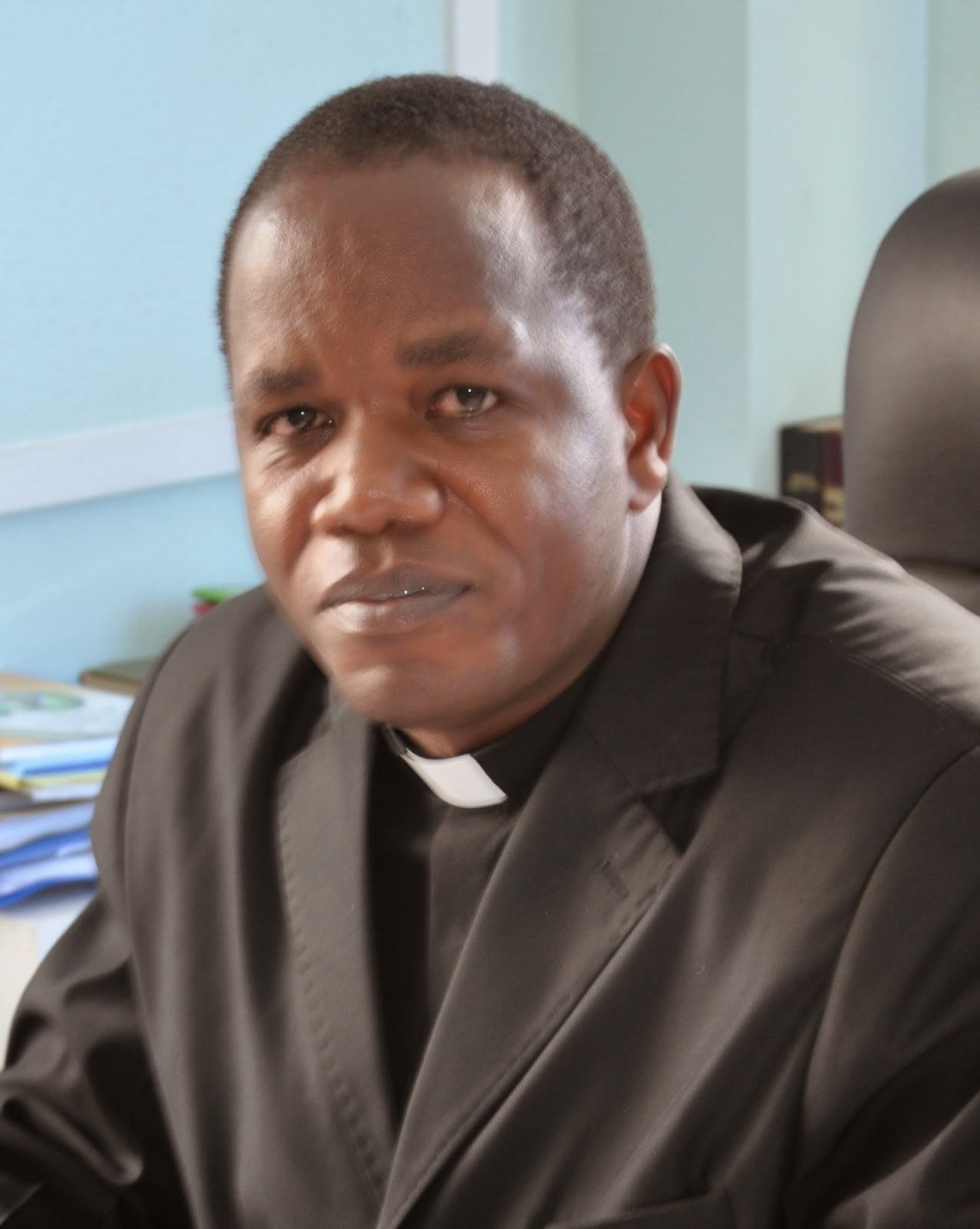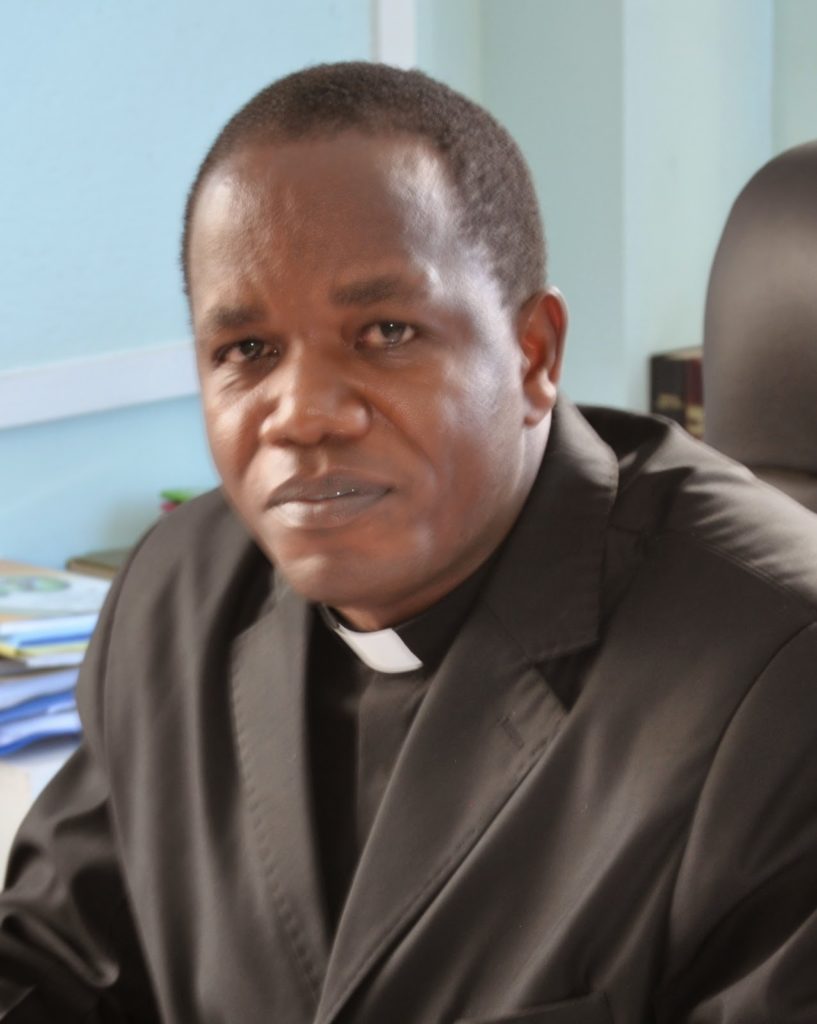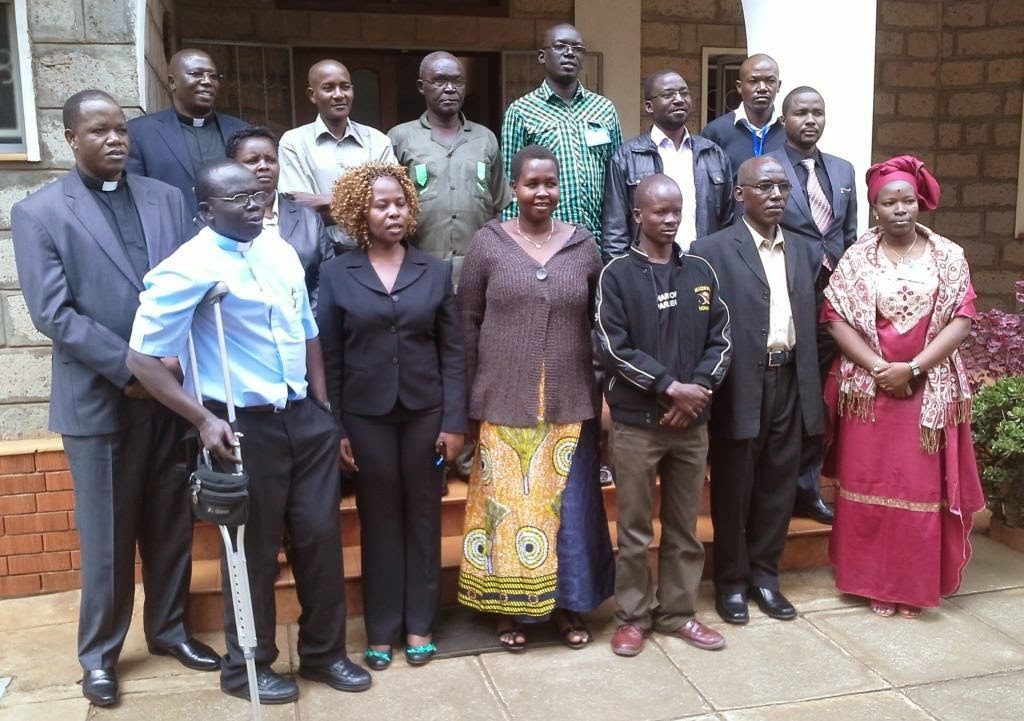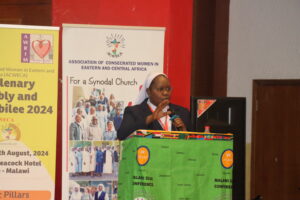AMECEA: Sec. General Asks the Church to Play her Due Role on Critical Issues of Economic Justice

 |
| Fr. Ferdinand Lugonzo, AMECEA Secretary General |
AMECEA Secretary General Fr. Ferdinand Lugonzo
has asked the Church to play its due Role in
addressing issues of economic justice
and be part of the answer from various issues of natural resources affecting the
people for a just society.
has asked the Church to play its due Role in
addressing issues of economic justice
and be part of the answer from various issues of natural resources affecting the
people for a just society.
Speaking during a workshop organized by
AMECEA Justice and Peace department on Extractives Consultation which was held
in Nairobi Kenya for Kenya and Uganda Conferences, Fr. Lugonzo said that the
Church which has a role as the voice of the voiceless must critically reflect on issues that are affecting
ordinary people. “Why do we have many natural resources yet our people remain
poor? Who is benefiting from the resources? What are the policies regulating
these activities?” he posed
AMECEA Justice and Peace department on Extractives Consultation which was held
in Nairobi Kenya for Kenya and Uganda Conferences, Fr. Lugonzo said that the
Church which has a role as the voice of the voiceless must critically reflect on issues that are affecting
ordinary people. “Why do we have many natural resources yet our people remain
poor? Who is benefiting from the resources? What are the policies regulating
these activities?” he posed
 |
| Group photo of Workshop Participants |
He told the participants that the workshop was
providing a great opportunity to explore ways in which the Church can engage
with the experts in the areas of mining and extractive activities so that she
can continue working with Law Makers for positive interventions and advocacy in
formulating better policies. “This will help in addressing some of the deeply routed
social problems especially touching on the thorny matter of land acquisition,
displacement and resettlement and how the affected communities are involved in
all this process,” he said.
“Our hope is that this kind of engagement
will help the Church in intervening for the people in an effective manner and
that such interventions shall help in channeling the resources of these
countries in serving the common good and not a few individuals,” he said adding
that “By taking such steps, the church shall be working for justice. Our
commitment shall be informed by the Gospel values and the Social Teaching of
the Church.”
will help the Church in intervening for the people in an effective manner and
that such interventions shall help in channeling the resources of these
countries in serving the common good and not a few individuals,” he said adding
that “By taking such steps, the church shall be working for justice. Our
commitment shall be informed by the Gospel values and the Social Teaching of
the Church.”
Fr. Lugonzo told the participants that addressing
issues of economic justice facing people around mining and extractive
activities is in line with the Strategic Plan of AMECEA in its pursuit for justice
for all and integrity of creation.
issues of economic justice facing people around mining and extractive
activities is in line with the Strategic Plan of AMECEA in its pursuit for justice
for all and integrity of creation.
SOURCE: Pamela
Adinda, AMECEA Social Communications.
Adinda, AMECEA Social Communications.
NB: Below is
the full speech of Fr. Lugonzo
the full speech of Fr. Lugonzo
Extractives
Consultation Workshop 15th-18th September 2014,
Consultation Workshop 15th-18th September 2014,
Emmaus
Centre, Nairobi
Centre, Nairobi
By
Very Rev. Fr.
Ferdinand Lugonzo,
Ferdinand Lugonzo,
Secretary General – AMECEA
I am delighted to welcome you to Nairobi the Home of AMECEA
Secretariat. I sincerely thank you for the work you are doing in your
respective countries. In this gathering, we have representatives from National
Justice and Peace Commissions, people from various regions in Kenya and Uganda
where extractive activities take place and Government representatives from the
two countries. The diversity in representation reflects the commitment and
enthusiasm which we all have in finding solutions to the challenges facing our
people in relation to this very vibrant industry.
Secretariat. I sincerely thank you for the work you are doing in your
respective countries. In this gathering, we have representatives from National
Justice and Peace Commissions, people from various regions in Kenya and Uganda
where extractive activities take place and Government representatives from the
two countries. The diversity in representation reflects the commitment and
enthusiasm which we all have in finding solutions to the challenges facing our
people in relation to this very vibrant industry.
We are gathered here under the umbrella of the Association
of Member Episcopal Conferences in Eastern Africa (AMECEA). This is a Catholic
Organization of the Bishops of 9 countries in the Eastern Africa (Ethiopia,
Eritrea, Kenya, Malawi, South Sudan, Sudan, Tanzania, Uganda and Zambia). It was established in 1961 as a tool of
Evangelization that addresses common Pastoral Endeavors through solidarity and
collaboration. In order to achieve its mission, AMECEA has created various
Departments like Social Communication, Pastoral and Justice and Peace to
respond to various needs in the mission. The Department of Justice and Peace
which has gathered us here today was started in the year 2002 for the purposes
of addressing socio-political and economic challenges in this region.
of Member Episcopal Conferences in Eastern Africa (AMECEA). This is a Catholic
Organization of the Bishops of 9 countries in the Eastern Africa (Ethiopia,
Eritrea, Kenya, Malawi, South Sudan, Sudan, Tanzania, Uganda and Zambia). It was established in 1961 as a tool of
Evangelization that addresses common Pastoral Endeavors through solidarity and
collaboration. In order to achieve its mission, AMECEA has created various
Departments like Social Communication, Pastoral and Justice and Peace to
respond to various needs in the mission. The Department of Justice and Peace
which has gathered us here today was started in the year 2002 for the purposes
of addressing socio-political and economic challenges in this region.
During the two days that you will be here, you will be addressing
issues of economic justice facing our people around mining and extractive
activities. This fits in very well with the Strategic Plan of AMECEA in its
pursuit to advocate for integrity of creation and justice for all.
issues of economic justice facing our people around mining and extractive
activities. This fits in very well with the Strategic Plan of AMECEA in its
pursuit to advocate for integrity of creation and justice for all.
Indeed it is difficult to separate political problems with
economic problems. Struggle for political power is based on the need to address
economies. Those in power are expected to empower their people economically but
this does not seem to happen to the right standards. African politics have
tended to be anchored in economic empowerment of the politicians themselves and
using the same endowment to manipulate their respective communities. This leads to ethnicity, tribalism, regionalism
and many other social inequities that influence political landscape.
economic problems. Struggle for political power is based on the need to address
economies. Those in power are expected to empower their people economically but
this does not seem to happen to the right standards. African politics have
tended to be anchored in economic empowerment of the politicians themselves and
using the same endowment to manipulate their respective communities. This leads to ethnicity, tribalism, regionalism
and many other social inequities that influence political landscape.
It is against this background that the Church has a role to
play in addressing poverty by asking critical questions like: Why do we have
many natural resources yet our people remain poor? Who is benefiting from the
resources? What are the policies
regulating these activities?
play in addressing poverty by asking critical questions like: Why do we have
many natural resources yet our people remain poor? Who is benefiting from the
resources? What are the policies
regulating these activities?
These are questions the Church in AMECEA would wish to begin
asking and having the government representatives is a blessing to us in
shedding more light on the policies regulating the industry and the gaps
therein.
asking and having the government representatives is a blessing to us in
shedding more light on the policies regulating the industry and the gaps
therein.
But in her role as the voice of the voiceless, the Church
cannot stop at questions. We seek to be part of the answer to the quest of the
people for a just society. In this workshop, therefore, we will explore ways of
Church engaging with the experts in this area so that she can continue working
with Law Makers for positive interventions and advocacy in formulating of
better policies. This will help address some of the deep seated social problems
especially touching on the thorny matter of land acquisition, displacement and
resettlement and how the affected communities are involved in all this process.
cannot stop at questions. We seek to be part of the answer to the quest of the
people for a just society. In this workshop, therefore, we will explore ways of
Church engaging with the experts in this area so that she can continue working
with Law Makers for positive interventions and advocacy in formulating of
better policies. This will help address some of the deep seated social problems
especially touching on the thorny matter of land acquisition, displacement and
resettlement and how the affected communities are involved in all this process.
Our hope is that this kind of engagement will help the
Church in intervening for the people in an effective manner and that such
interventions shall help in channeling the resources of these countries in serving
the common good and not a few individuals. In doing this we shall be working
for justice. Our commitment shall be informed by the Gospel of Jesus Christ and
the Social Teaching of the Church.
Church in intervening for the people in an effective manner and that such
interventions shall help in channeling the resources of these countries in serving
the common good and not a few individuals. In doing this we shall be working
for justice. Our commitment shall be informed by the Gospel of Jesus Christ and
the Social Teaching of the Church.
With these few remarks I once again welcome you to this
workshop and pray for the guidance of the Holy Spirit for fruitful
deliberations.
workshop and pray for the guidance of the Holy Spirit for fruitful
deliberations.
Thank you all.


